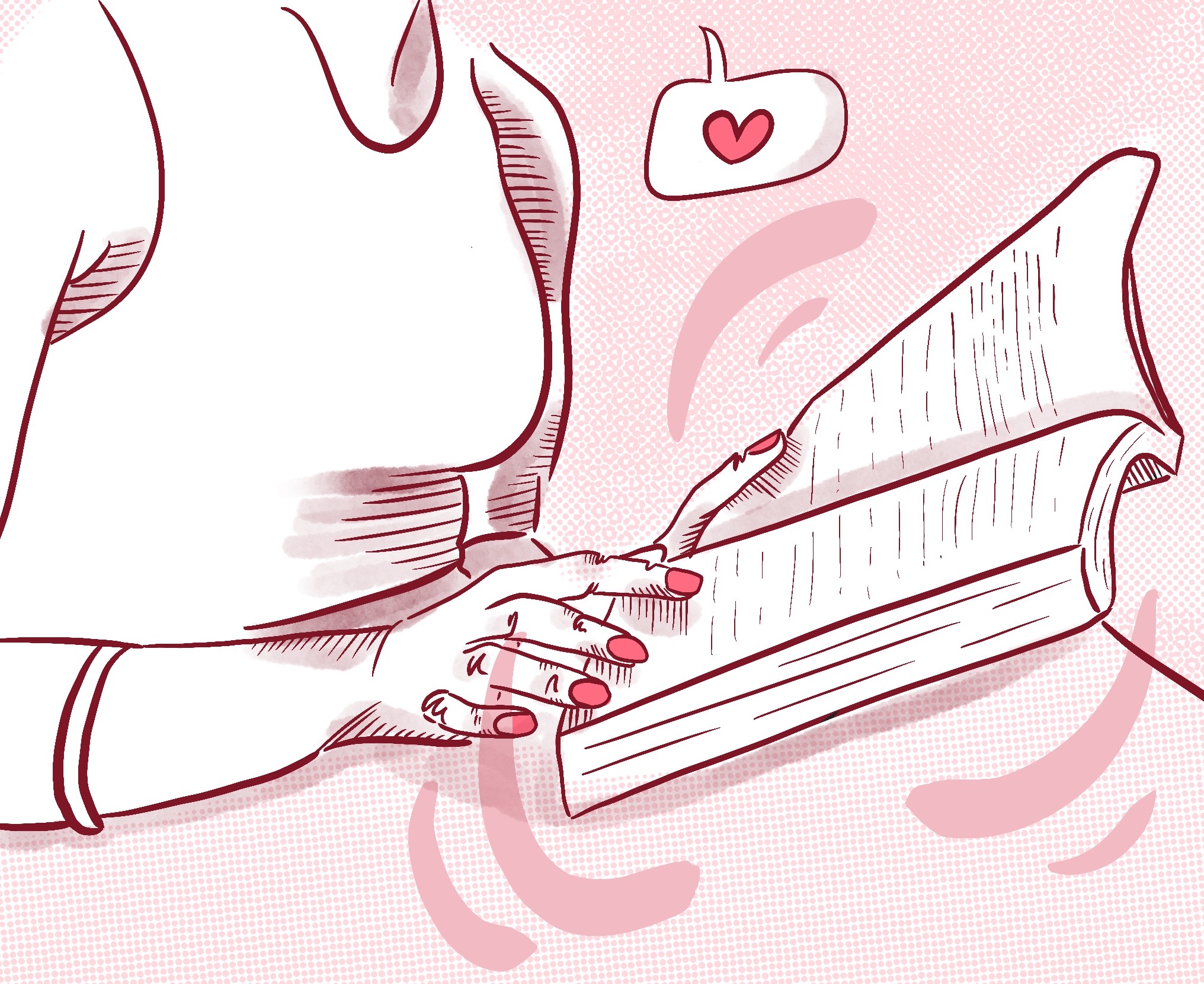The Flavor of Human Kindness

artwork by Claire Tomasi
On May 24th, 2019, Taipei’s household registration offices overflowed with the wedding ceremonies of over 300 gay and lesbian couples, marking the first day in Taiwan’s history that same-sex couples enjoyed the legal right to marry. To celebrate the culmination of their ten-year struggle, the Taiwan Alliance to Promote Civil Partnership rights organized a mass wedding banquet (known by its Hokkien name ban-do) at the park in front of the presidential palace. A ban-do is not only the most traditional kind of wedding banquet in Taiwan, but also the most public celebration possible. It throws its arms open to the whole community: huge round tables and plastic chairs are rolled out and set up in a public park or courtyard, under a steel framework of makeshift, striped awnings. All passers-by are welcome to grab a plate and enjoy the music, dancing girls, speeches and karaoke that spill over into the whole neighborhood, fueled by endless rounds of copious eating, drinking, and toasting the newlyweds.
The night of the LGBTQ ban-do, I was alone, watching its live stream on my computer screen at home. A-lun, the Taiwanese woman I married in New York in 2015, had recently left me for a straight woman from the countryside. A woman who would sooner strip naked in the public square than live openly with A-lun as a couple. The irony is not lost on me that the only way in which the two of us will personally benefit from Taiwan’s same-sex marriage law is that we can now file for divorce without leaving the country. But that’s not what this essay is about. This essay is about the small, random gestures of kindness I received from four strangers the day I moved out of our apartment: a neighbor, a taxi driver, a security guard, and an elevator repairman—unfortunate bystanders who had been inadvertently sucked into the emotional morass of our separation. These small acts perfectly reveal a uniquely Taiwanese flavor of kindness, known as renqingwei.
The night before I moved out, A-lun told me that she was going on a weekend trip “with classmates”. Having endured weeks of evasive answers, unexplained absences, and protective huddling over her cell phone, I knew that this was a lie. The next morning, in desperation, I opened the photo drive of her computer, where I found girlish, pouting selfies of a middle-aged housewife, enshrined in heart-shaped photoshop frames. Shaken out of my fog of gaslit depression, I immediately started gathering armfuls of my books and clothes, desperate to escape the burning building that my marriage had become. Running on fumes, fueled by the need to be gone before she got back, stuffing books into boxes at a furious pace, I was clumsy and weak from lack of food and sleep. Finally, in the 38-degree heat, I dragged the last of my suitcases to the elevator and ran back to the apartment one last time to weep into our dog’s neck: “I’ll be back for you soon.”
After I had finally moved the last of my suitcases down to the underground garage to wait for my taxi, I realized that my cell phone had somehow slipped out of my hands en route. Sweaty and trembling, I left the suitcases downstairs and retraced my steps back to the apartment. But my phone wasn’t on the landing, or in the elevator, or in the apartment. Where could it be? I had just used it to call a taxi. Back in the underground garage, a neighbor saw me peering under cars and started helping me to look, shining his cell phone flashlight around the path I had taken, walking back and forth until I pleaded with him to give up, embarrassed at having taken up so much of his time.
By then, the taxi had arrived, and the driver had already loaded all my boxes and suitcases into the car without my help. I explained the situation, apologizing for the delay. The driver told me not to worry and to keep looking. He asked for my number so that he could call my phone continuously, and I could listen for the ringtone while I searched. After making the rounds from the parking garage to the elevator to the apartment twice, I gave up the search and asked the driver to just take me to my friend’s apartment. On the ride over, I couldn’t stop crying and shaking. I didn’t want my marriage to end. I tried to explain my tears away by telling Mr. Chen (I could now see his name under his license photo) that all my information was on the missing phone, and that I was anxious about the possibility of identity theft. Through a stream of reassurances that most people in Taiwan would return a phone they had found on the street rather than using the information on it (which is true), he continued to call my cell number. “See, it’s still ringing. If someone had wanted to steal it, they’d have shut it off by now. I’ll keep calling the whole way if it makes you feel better.”
Suddenly, I remembered the side-to-side rocking and clunking I had felt while riding down with my bags in the elevator. At the time, I had thought it might be an earthquake – a common occurrence in Taiwan and not necessarily cause for alarm. But then it hit me: my phone had probably fallen down the elevator shaft through the crack between the elevator and the landing, which was exactly wide enough to accommodate an exceptionally unlucky cell phone. I explained my working hypothesis to Mr. Chen, and he agreed to wait until I had unloaded my bags at my friend’s place to drive me back home. After calling my phone continuously through the half-hour trip back—“see, it’s still ringing” — he wrote his own cell number on a slip of paper and handed it to me when he dropped me off at the security gate. “Call me no matter what happens. If you find the phone, let me know so I can stop worrying. If you don’t find it, I’ll take you to the nearest Taiwan Cellular to cancel the SIM card. Don’t worry. Just call me either way.”
My distress was so embarrassingly apparent that Mr. Lin, the security guard on duty, immediately called the elevator repairman and led me to a bench, where I could sit to wait until he arrived. After a side-glance at my sweat and tear-streaked face, Mr. Lin brought over a bottle of cold tea and a slim cellophane packet of tissues. Twenty minutes later, the repairman came putt-putting along on his motorbike and got straight to work. Within ten minutes, he emerged from the elevator shaft triumphant, holding my miraculously undamaged phone aloft. He grinned: “Is this what you were looking for?” Showering him with thanks and apologies for interrupting his weekend, I pressed money into his hand, brushing away his protestations. Then I called Mr. Chen straight away, who shared my joy and relief at having recovered the phone unharmed.
Over the years, I’ve been on the receiving end of many such small, but uncannily observant and thoughtful gestures. One day in Keelung, I was hurrying to catch the bus in a typhoon. My umbrella had just been chewed into a useless pulp by the strong winds, when a woman in full-body rain gear appeared from out of nowhere to offer her own umbrella as shelter. As we walked to the bus stop together, she gave me step-by-step instructions on how to properly angle both the umbrella and my body to brace myself against the wind and rain. Before she left, she gave me her umbrella, insisting: “I’m wearing a rain suit. What will you do when you get off the bus?” Waving off my thanks, she pulled her hood tighter and set off in the opposite direction.
On the bus itself, I’m often in the front-row of “The One Empty Seat” drama, in which two older women board together and argue over the one empty seat they’ve spotted, each insisting that the other should take it. Hovering over the empty seat, the two of them argue in Taiwanese: “Li zei”. “Maila. Ho li zei” “Ben.” “Li zei[1]” This exchange continues until the moment they both get off the bus, abandoning the still-empty seat in a bustle of maroon-tinted hair, metallic sneakers, and plastic shopping bags.
Between intimate partners, renqingwei runs much deeper: it requires anticipation, followed by tacit and precise response to your beloved’s needs. Such gestures are described as 貼
心 (tiexin), a combination of the characters “stick close to” and “heart”—a quality which is highly sought after in a mate. For example, A-lun quietly observed that I panic in crowds dense enough to press me up against the bodies of strangers. Every time we got into an elevator, she would instinctively steer me into a corner and stand directly in front of me, effectively shielding me from physical contact with other people. In response, I’ve developed my own flavor of tiexin: as a masculine-presenting lesbian, I knew that A-lun often had to endure awkward scenes in public restrooms: the women around her would jump back in shock or unhelpfully point out “You know, this is the ladies’ room.” To spare her this embarrassment without calling attention to her need for help, every time she had to use a public restroom, I would walk in with her and keep her talking, so that the women around her were reassured by both my presence and the timbre of her voice that she was a woman.
Even now, her tiexin moves me so deeply that I can barely stand to be around her. A few months ago, I had minor dental surgery, which I’d been dreading and postponing for months, A-lun took the day off to drive me to the clinic. She told silly jokes on the ride over to distract me, held my hand in the waiting room and listened intently to the dentist’s after-care instructions. After we had left the office, she arranged my medication in a pill box labeled “morning”, “afternoon” and “evening”, drove me back to my rented room on the outskirts of town, and bought soft food for me to eat for when the swelling in my jaw had gone down enough to swallow. In a series of text messages and phone calls over the next few days, she repeated all the dentist’s directives (twice) and asked whether I was feeling any better. She ended each message by insisting that I call her anytime, no matter what happens.
The Taiwanese flavor of kindness comes from all angles and often at the oddest moments. When I lived in Kaohsiung, I had terrible allergy attacks in the morning. Every day, before I left for work, I would walk my dog past the same Chinese medicine shop, sneezing and honking into a tissue on my way back and forth to the park. After three weeks, the shop owner could endure no more: the next time she saw me sniffling by, she ran out of the shop and offered me a vial of brown powder in her cupped hands. “One spray into each nostril as soon as you wake up. And drink a glass of warm water. Please! It will make a big difference. I promise you.” And it did. I was just some random, sneezing stranger, but the pharmacist had still taken the time and trouble to think about my predicament, lie in wait for me, and insist on offering a solution. Expressions of renqingwei may vary in style and substance, but they all carry the same message: “I see you. I’m taking the time to figure out what you need. And then give it to you before you can even think to ask.”
[1] “You sit. No, you sit. I don’t need to sit. You sit.”


